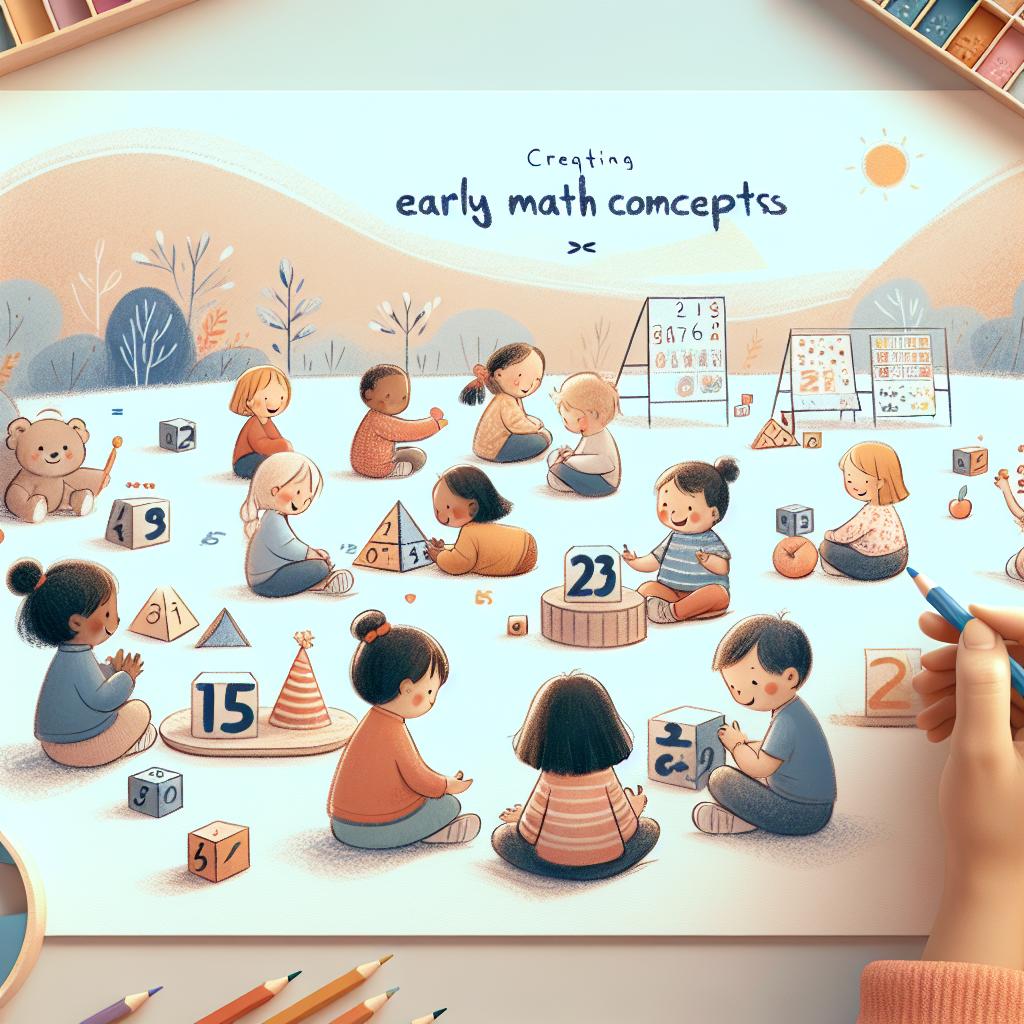Introducing Numbers and Counting Activities: The Fun and Playful Approach
As parents, we all want to give our children the best educational start in life. One important area of early learning is mathematics. But how can we introduce early math concepts to our kids in a fun and engaging way? The answer is simpler than you might think: through play. Educational games and counting activities are effective ways to teach kids number recognition and counting skills while also having a blast! Let’s delve into some fun-filled, math-centric activities that we absolutely adore.
Interactive Books: A Creative Way to Introduce Early Math Concepts
Interactive books are an incredible tool for introducing early math concepts to children. They provide an engaging narrative, colorful illustrations, and interactive elements that encourage kids to count, sort, and compare. Preschoolers can learn the basics of numbers while following along with the story and manipulating pieces on the pages. This is not only educational but also loads of fun!
For instance, books that contain pop-ups or flaps to lift enhance a child’s gross motor skills while teaching them about numbers. Such books flawlessly blend learning and play, thereby making math a less daunting subject for kids. You can learn more about how interactive books can improve your child’s listening skills here.
Leverage Educational Games to Teach Numbers
Educational games provide a playful yet effective way to teach early math concepts to your children. They foster a learning environment where children can understand numbers and counting, all while being immersed in play. Here are a few games we love:
- Number Bingo: This timeless game not only teaches kids how to identify numbers but also instills patience and improves concentration.
- Counting Maze: A counting maze helps children understand the concept of sequential counting. It’s interactive, fun, and your kids will love it!
- Matching Numbers Game: By matching number cards, kids can learn to recognize and associate numeric symbols with their names and sounds.
You can find more stellar ideas on how to develop early math skills through play here.
Encourage Counting Activities in Everyday Life
Learning numbers isn’t confined to structured play or educational games; everyday life is filled with opportunities to introduce numbers to your child. For instance, asking your child to count how many apples you’re buying at the supermarket or determining how many steps lead to your front door are excellent ways to practice counting. Engaging in these activities makes learning math relevant and enjoyable for your child.
Another inventive way to turn everyday objects into learning tools is using candy hearts for early math. This fun activity can help your child understand the concept of numbers, patterns, and counting. Discover how to put this into practice here.
Essential Tips to Boost Your Child’s Early Math Skills
As crucial as it is to employ educational games and counting activities, there are other critical factors to consider when teaching your child math. Here are some expert tips:
- Make Learning Fun: The key to a successful learning experience is to make it enjoyable. Utilizing games, songs, and physical movements can make math fun and less intimidating for your child.
- Start Simple: Begin with the basics. Start with number recognition and counting before proceeding to more complex concepts.
- Practice Regularly: Consistency is key when it comes to learning. Ensure your child practices their math skills daily, even if it’s just for a few minutes.
For more tips on how to boost your child’s early math skills, click here.
Helpful Resources for Early Math Activities
There’s no shortage of online resources that provide ideas for fun, math-centric activities. Stanford Graduate School of Education’s Development and Research in Early Math Education (DREME) features a host of innovative ideas that explore early math at home. For DIY enthusiasts, blogs like Frugal Fun 4 Boys provide engaging and budget-friendly math activities that allow kids to learn while having fun.
Websites like Adventures in Storytime offer unique insights on how to incorporate math in literacy activities, helping your child appreciate both subjects. With these resources at your disposal, you’ll never run out of exciting ways to introduce early math to your child.
Integrating Math Activities into Storytime
Merging creative storytelling with math activities can be a powerful learning tool. By weaving numbers and counting into narratives, you make learning math a more interesting and enjoyable experience for your little one. Adventures in Storytime offers a range of progressive ideas for incorporating math into literacy activities, thereby enhancing both their numeracy and literacy skills.
Fun Math Activities for Toddlers
For toddlers, make math a hands-on activity that they can physically interact with. Create counting games with toys they love, mark numbers on the sidewalk in chalk, or play number-related songs they can dance to. Busy Toddler has a selection of age-appropriate ideas like these that make math easier and more enjoyable. Always aim for activities that are interesting, applicable, and approachable, even for little learners.
The Role of Parents in Fostering a Love for Math
Your role as a parent is crucial in instilling a love for math in your child. By engaging with your child during these math activities, you not only teach them about numbers but also demonstrate that learning can be an enjoyable process. Moreover, your involvement also provides ample opportunities for bonding, allowing you to witness your child’s progress in real time.
Remember, each child is unique and may progress at different rates. The goal isn’t for your child to become a math prodigy overnight, but to cultivate an appreciation for numbers and the world of knowledge that opens up with it. As you explore different strategies and activities, don’t forget to celebrate your child’s individual learning journey.

